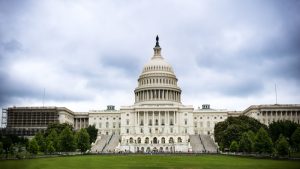With an announced theme of Lead, Collaborate, and Inspire, the National Association of State Chief Information Officers (NASCIO) will hold its midyear conference on May 25-27. Unfortunately – like both of last year’s big conferences – this month’s show will take place virtually, but the group’s annual conference may go in-person this Fall.
As the integration of artificial intelligence (AI) into processes becomes more and more the norm, issues of privacy, bias, and accessibility all must be taken into account when considering what is ethical use of AI, a National Institute of Health (NIH) official said May 10.
National University, a California-based nonprofit that caters to adult learners, has turned to an AI-driven chatbot to help improve student retention.
The Federal Communications Commission (FCC) has adopted the final rules to implement the Emergency Connectivity Fund Program, which will help schools and libraries purchase the technology needed to close the homework gap.
Amid a school year marked by modernizing education technology to enable distance and hybrid learning, Arizona State University’s Thunderbird School of Global Management had a technology-driven graduation ceremony featuring commencement speeches delivered via hologram.
Reps. Andy Kim, D-N.J., and Joe Wilson, R-S.C., introduced bipartisan legislation on May 4 that would strengthen states’ cybersecurity readiness and allow governors to deploy their state’s National Guard to respond to cybersecurity threats.
A New Mexico judge ordered the state to provide computers and high-speed internet access to “at-risk” students who lacked the resources needed to access remote learning both during and after the coronavirus pandemic.
Members of a key House cybersecurity subcommittee and a panel of expert witnesses agreed at a May 5 hearing on the pressing need to disrupt ransomware-driven cyber attacks, and aired a variety of strategies to more toward that goal.
New research on broadband accessibility found that 77 percent of Americans now have access to low-priced wired broadband plans in the first quarter of 2021.
Labor Secretary Marty Walsh told members of Congress last week that between $600 and $700 million of Federal funding approved under the American Rescue Plan Act will be used to pay for technical assistance to states to improve their unemployment insurance (UI) systems.












